This is the fifth in a series of fifteen planned reviews of the films of John Flynn. During his 33-year career, Flynn directed everything from intimate character studies of volatile, potentially violent men to dark revenge films to early Steven Seagal vehicles and everything in between. Utilizing a spare style of filming that subscribed to the idea that the audience should not be aware of the director, Flynn placed an emphasis on strong performances and cleanly shot and edited action sequences that showcased impressive stunt work. His films show how a director with a clear vision can elevate even the most generic potboiler into a sturdy genre film worthy of rediscovery, yet most film buffs do not know his name.
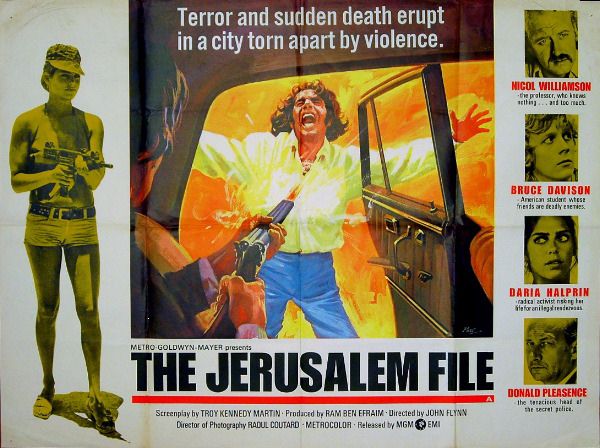
A damn hard movie about which to write, THE JERUSALEM FILE was Flynn’s follow-up to THE SERGEANT and shares a few stylistic similarities with that film while veering wildly in a different direction in its plotting and thematic concerns. Both films were a few years ahead of their time, but where THE SERGEANT was exploring subject matter that was still relatively new to mainstream studio films, THE JERUSALEM FILE is an exercise in tonal dread and intricate conspiracies that reminded me most strongly of THE PARALLAX VIEW — a film it beat to theaters by two years.
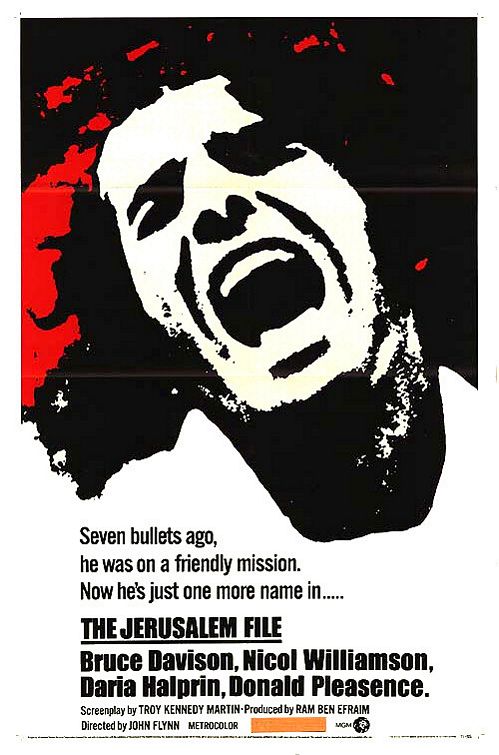
David Armstrong (Bruce Davison) is an American grad student studying architecture in Israel in the extremely turbulent years immediately following the Six-Day War. David is introduced telling his friend Rashid (Ze’ev Revach), the leader of an Arab resistance group, that he has decided to return to America. Despite being sympathetic to Rashid’s cause, David no longer can stand the constant strain of political bickering among his fellow students and the threat of violence breaking out at any second. Rashid is disappointed to lose an ally, but is understanding. As he and David have a goodbye drink at a café, a different resistance group makes an attempt on Rashid’s life. Rashid saves David’s life and flees underground before another assassination attempt can be made.
Enter Major Samuels (Donald Pleasence), an investigator for the Israeli military. Samuels is worn down by his pursuit of the resistance group that attempted to assassinate Rashid. Samuels believes Rashid and his group may be more open to negotiating peaceful relations in Jerusalem with the ruling Israeli government. The only problem is that he has been unable to track down the young man and fears that another attempt on his life could cause all-out war in the streets. Desperate for a break, Samuels sees David as his best bet for finding Rashid.
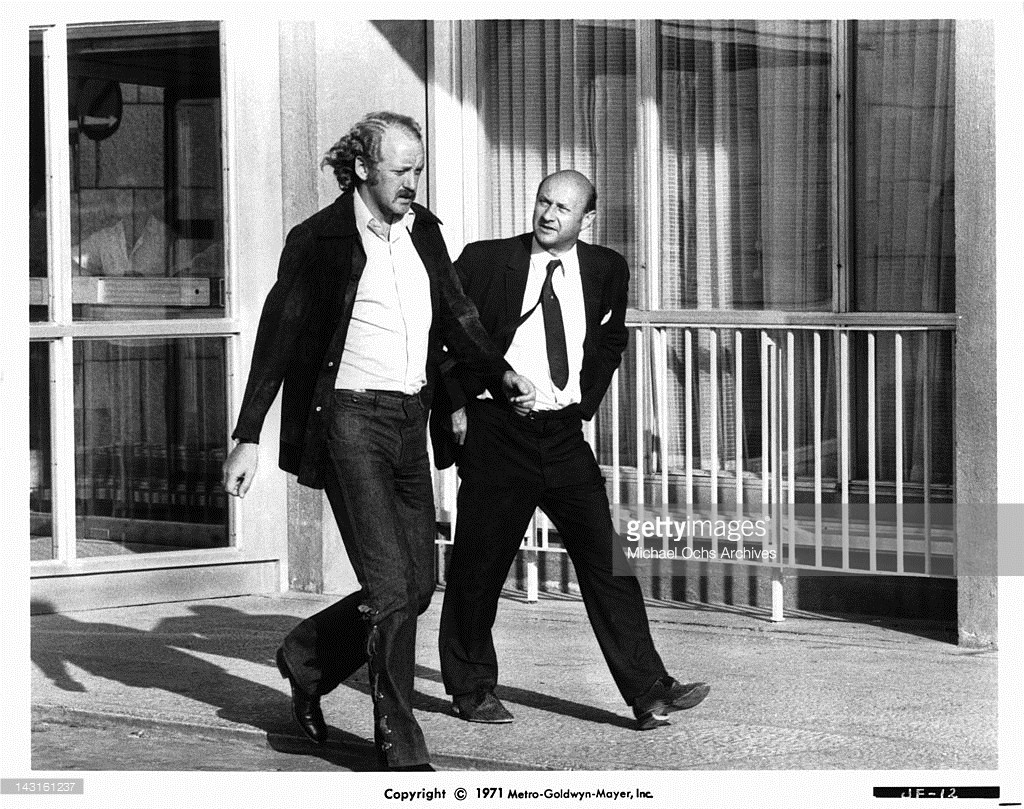
With his passport being held by Samuels, David returns to his studies under Professor Lang (Nicol Williamson), a British archaeologist who is doing his best to avoid the political turmoil surrounding him. Despite Lang’s warnings, David finds himself befriending Barak (Koya Yair Rubin), an Israeli veteran of the Six-Day War who is just as interested in meeting Rashid as Samuels is. Barak claims to see himself as an ambassador of a younger Israeli generation that is more pragmatic and dedicated to finding a peaceful end to conflicts in the region. But does he really mean what he says? And for that matter, is Rashid as interested in working toward peace as David and Samuels believe?
Strangely enough, I think I just made THE JERUSALEM FILE sound more tense and suspenseful than it actually is. While Flynn excels at bringing a sense of danger and a tone of inevitable tragedy to the film, there is very little in the way of actual tension. This is largely because David is such a boring central figure to follow.
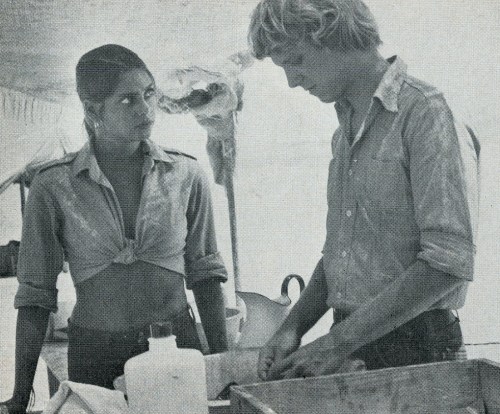
Surrounded by characters claiming to have lofty ideals about ending the never-ending hostilities in their region, all David wants to do is avoid helping Samuels while he decides if he trusts Barak’s intentions. An interior struggle is hard for the best actors to make interesting on the screen, and while I would never called Davison a bad actor, he was the wrong choice for David.
Playing every scene with an aloof smirk that I suppose is meant to mark David as an enigmatic figure, Davison comes across as a smug little jerk, instead of the charismatic idealist who can befriend people on both sides of a complicated conflict. Making matters even worse for Davison, he is forced to share the screen with Pleasence and Williamson — two charismatic, scenery-chewing veterans who never phoned in a performance in their careers. It does not take much for these seasoned performers to overwhelm the young star and make you wish the movie were about them instead.
But the blame for this only partially belongs to Davison. The script by Troy Kennedy-Martin never gives the audience much to latch on to about David. He is sketchily drawn and vaguely unpleasant, insulting Barak almost immediately after meeting him. The only definitive action he takes comes when he helps Nurit (Daria Halprin), a fellow student, get to cover when their archaeological dig comes under fire from a sniper (the danger of being a foreign presence in the area is repeatedly underlined). But this heroic act is almost immediately undercut when he immediately puts on a “cool under fire” act to impress Nurit. Instead of the act being funny or endearing, it simply comes off as smarmy.
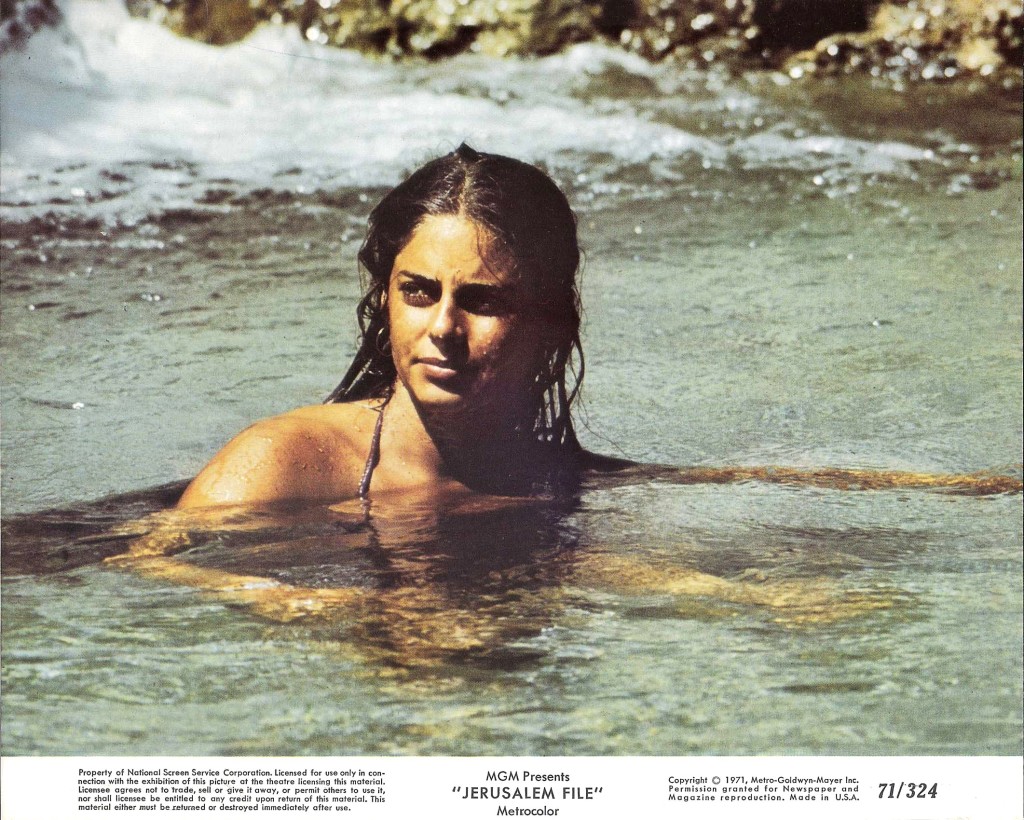
Perhaps realizing the black hole of a character at the center of the script, Flynn focuses more on the frustration of Samuels and Lang. Not only does this allow the film to come to life as Pleasence and Williamson own the screen, but it gives a world-weary sadness to the film. These two men have seen the youthful idealism of at least two generations get chewed up and spit out by the violence in the region. They can see the cycle in the process of repeating itself and go about different ways of trying to mitigate the damage. Samuels wants to meet Rashid to try and broker some kind of longer lasting peace than just a day-to-day truce and he needs David to achieve that. Lang does not see any hope for a lasting peace in the region and wants David to leave for good so that when violence does catch up to Rashid, at least Barak, Nurit, and his other students do not get caught in the crossfire. The passionate attempts by Samuels and Lang to avoid tragedy provide the only fire in an otherwise ice-cold movie.
Despite this being a John Flynn film, the thriller aspects are largely kept to a minimum. Other than a nicely staged and edited sequence that finds Rashid’s would-be assassins tracking and murdering another resistance member, the film is much more of a sad-eyed drama in the vein of THE SERGEANT, while at the same time tapping into the same cynical tone of the aforementioned THE PARALLAX VIEW and Flynn’s ROLLING THUNDER. Nowhere is this joining of styles more pronounced than in the film’s emotional sucker-punch of a coda.
THE JERUSALEM FILE is a hard movie to track down. I would never go so far as to call it a lost classic. There are the major issues with the character of David and a forced romantic subplot that should have wound up on the floor of the editing room. But despite its flaws, it is a powerful film. The subject matter is still sadly relevant and so is the final message that the extremist minority of any ideology will always shut down those who are willing to work together. If violence is the method needed to shut them down, so be it. It does not get much darker than that.
— MATT WEDGE.

Catch up on previous episodes of our John Flynn retrospective!
THE OUTFIT (1973)
ROLLING THUNDER (1977)
Tags: Bruce Davison, Columns, Daria Halprin, Donald Pleasence, History, Israel, john flynn, Nicol Williamson


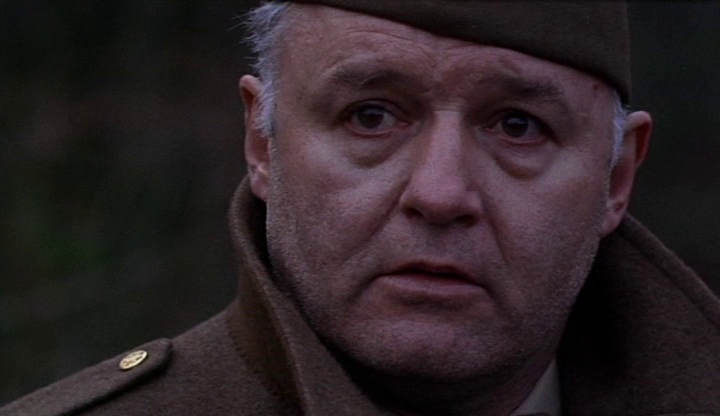
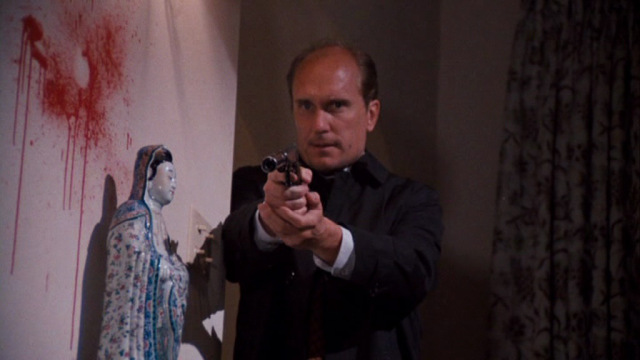
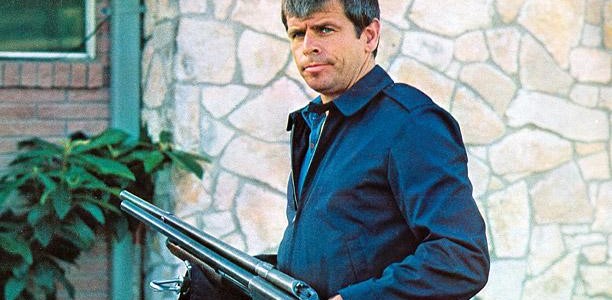

No Comments